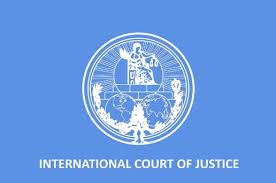Sovereign States under International Law
Sovereign States under International Law
Definition of a Sovereign State
A sovereign state is a political entity that possesses:
A permanent population,
A defined territory,
A government, and
The capacity to enter into relations with other states.
This definition comes from the Montevideo Convention on the Rights and Duties of States (1933), which is widely accepted as reflecting customary international law.
Elements of Statehood (Montevideo Criteria)
1. Permanent Population
A state must have people residing on a more or less permanent basis. There is no required minimum population.
Example: The Vatican City, despite its small population, qualifies as a state.
2. Defined Territory
A sovereign state must have a recognized geographical area. Precise or undisputed borders are not necessary, but there must be a reasonably stable territorial base.
Case Reference: Island of Palmas Case (1928)
In this case between the US and the Netherlands, the arbitrator Max Huber emphasized continuous and peaceful display of sovereignty over territory as a key criterion.
3. Government
The state must have a functioning government that exercises control over the population and territory.
Case Reference: Tinoco Arbitration (Costa Rica v. Great Britain, 1923)
The arbitrator ruled that even a de facto government exercising effective control could bind the state, regardless of whether it was recognized internationally.
4. Capacity to Enter into Relations with Other States
The state must be able to engage in foreign affairs independently.
Example: Taiwan meets the first three criteria but is limited in this fourth due to international non-recognition influenced by the "One China Policy."
Legal Personality of a Sovereign State
Under international law, a sovereign state has international legal personality, meaning it can:
Make treaties,
Sue or be sued,
Claim immunity,
Participate in international organizations.
Principles Related to Sovereign Statehood
1. Sovereign Equality
All states, regardless of size or power, are equal under international law.
Codified in: Article 2(1) of the UN Charter
2. Non-Intervention
No state may interfere in the internal affairs of another sovereign state.
Case Reference: Nicaragua v. United States (ICJ, 1986)
The ICJ held the U.S. violated international law by supporting rebels in Nicaragua, infringing on Nicaraguan sovereignty.
3. Recognition
Recognition is the acknowledgment by other states of a new entity as a state.
There are two main theories:
Declaratory Theory: Recognition merely confirms an existing state that meets the Montevideo criteria.
Constitutive Theory: Recognition by other states creates statehood.
Example: Kosovo
Declared independence from Serbia in 2008. It meets the Montevideo criteria and is recognized by over 100 states, but not a UN member due to non-recognition by major states like Russia and China.
Loss or Denial of Sovereignty
A state may lose effective control (e.g., due to civil war), but that doesn’t automatically extinguish its statehood.
Case Reference: Bosnia and Herzegovina v. Serbia and Montenegro (ICJ, 2007)
Despite armed conflict and lack of control over parts of its territory, Bosnia was still recognized as a sovereign state.
Key International Cases and Precedents
| Case Name | Court/Tribunal | Key Principle |
|---|---|---|
| Island of Palmas (1928) | Permanent Court of Arbitration | Territorial sovereignty requires continuous and peaceful display of authority. |
| Tinoco Arbitration (1923) | Ad Hoc Arbitration | De facto governments can represent a state internationally. |
| Nicaragua v. United States (1986) | International Court of Justice (ICJ) | Non-intervention is a core principle of sovereignty. |
| Kosovo Advisory Opinion (2010) | ICJ | Declaration of independence does not violate international law. |
| Western Sahara Advisory Opinion (1975) | ICJ | Right to self-determination is fundamental to statehood claims. |
Conclusion
Sovereign statehood under international law is based on factual criteria (Montevideo Convention) and shaped by political and legal recognition. While legal recognition helps in practice, the existence of a state is primarily determined by its factual attributes, not whether others recognize it.
Understanding the balance between effective control, legal recognition, and international acceptance is crucial in analyzing modern sovereignty disputes.












comments